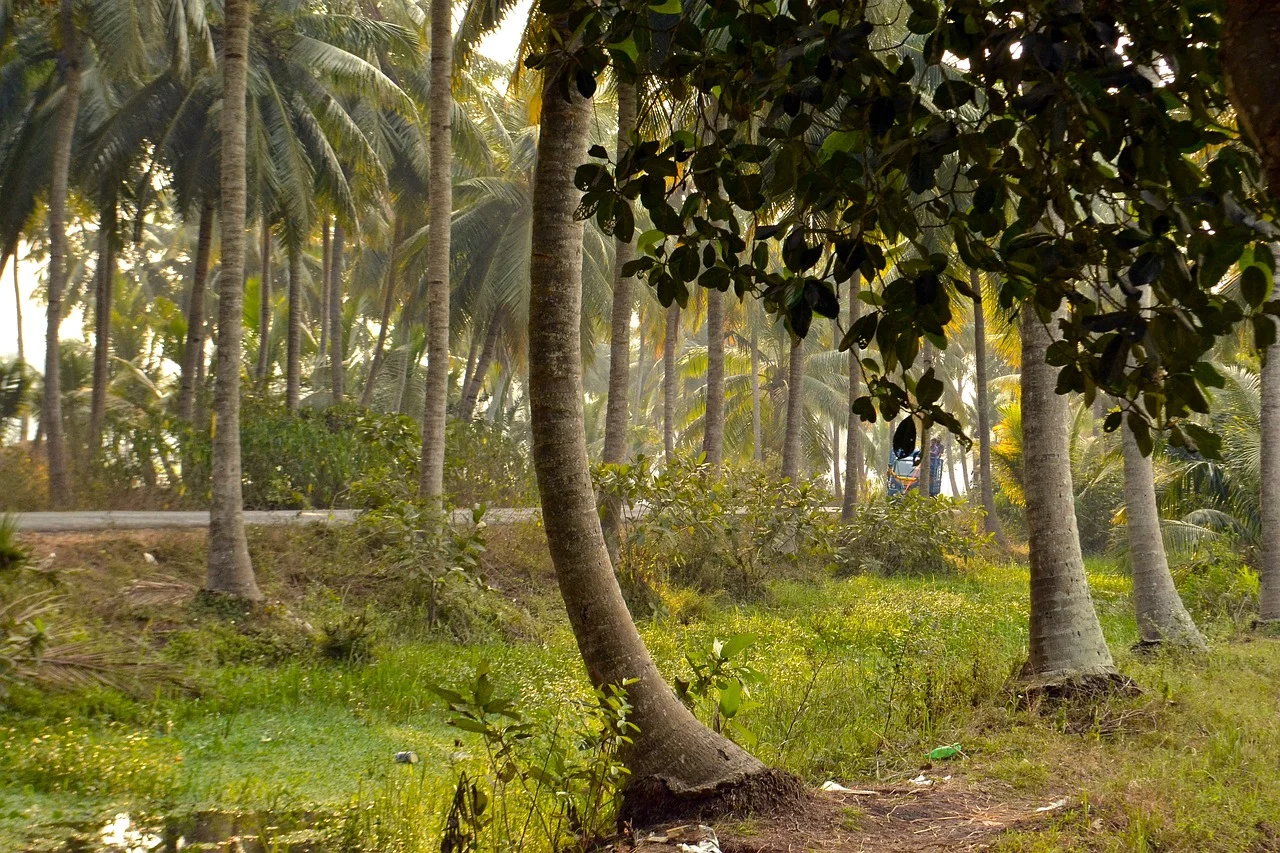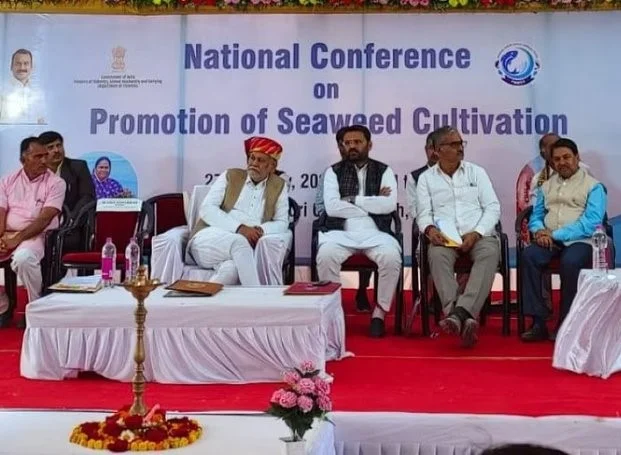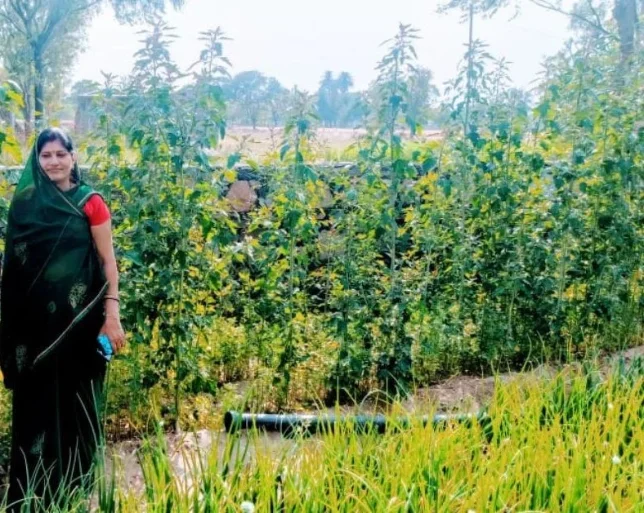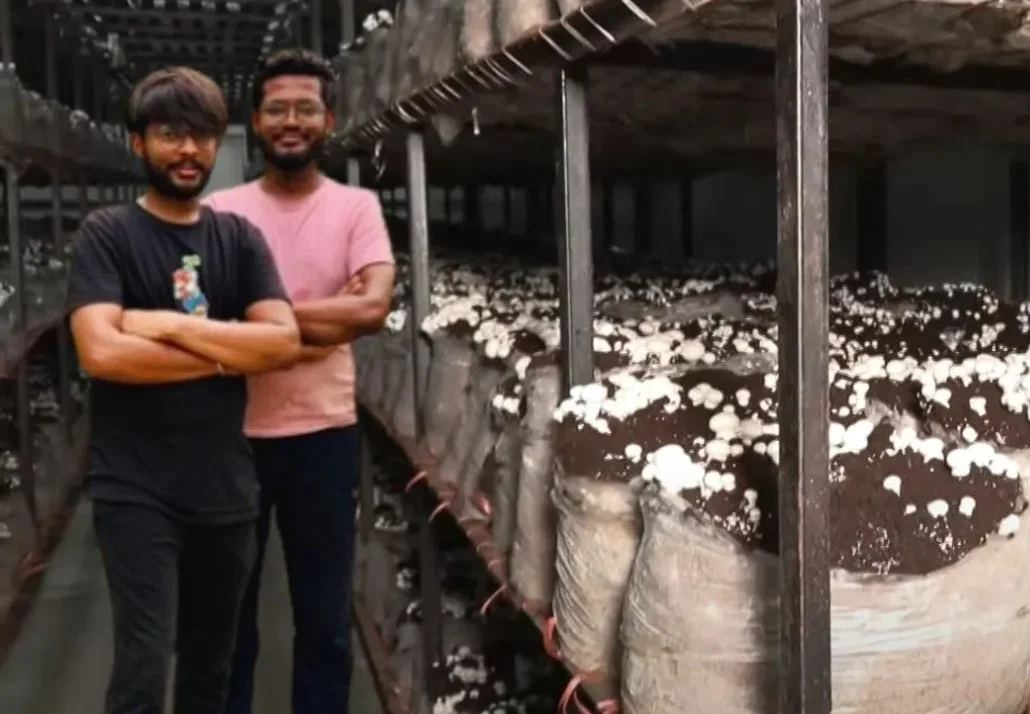Ishwar Pindoria was born in a village located 20 km southwest of Bhuj, just an hour and a half away from the Great Rann of Kutch.
During his childhood, Pindoria aspired to become a commercial pilot and soar through the skies. After completing his education in Rajkot and receiving pilot training in Baroda, he believed he was getting closer to realizing his dream.
However, unforeseen circumstances arose that led him to abandon his flying aspirations and take on the responsibility of overseeing his father’s business, which involved manufacturing concrete pipes.
Today, Ishwar Pindoria not only effectively manages the family business but also owns a state-of-the-art farm that attracts numerous farmers every harvest season.
Besides India, this farm has been capturing interest from Israel, renowned as the ‘mecca of farming technologies.’
The Israeli embassy in New Delhi, along with MASHAV (Israel’s Agency for International Development Cooperation in the Ministry of Foreign Affairs), honored Pindoria by creating a documentary showcasing his achievements as a date palm farmer.
Spanning 40 acres, this individual has been cultivating exotic Barhi dates, locally prized colored date varieties, pomegranates, and the renowned Kesar Mango using diverse Israeli farming techniques since 2006.

Despite facing challenging climate conditions, infertile sandy soil, and a severe water shortage, the former businessman turned farmer has consistently achieved a robust yield each year. The produce not only caters to consumers in domestic metropolitan areas but also reaches markets in the European Union.
Reflecting on his journey, the farmer from Gujarat reminisces, “As a child, I had a keen interest in gardening. I learned that farming was a traditional profession in my family’s history. However, over the generations, starting from my grandfather’s time, we shifted away from farming and became entrepreneurs. Even while managing my father’s company, I couldn’t shake off the thought of what it would be like to run my own farm.”
In 2003, he took a bold step and embraced farming as his new venture.
“I knew that if I ever started my own farm, I wouldn’t stick to traditional methods. I wanted to create something unique. And where better to gain exposure than in Israel, one of the leading countries globally when it comes to farming technologies?”
To grasp the agricultural practices in Israeli farms, he embarked on a 10-day journey across Israel, covering the expanse from the North of the Sea of Galilee to the South, accompanied by his friend, Abner Chin. Pindoria explored numerous farms and kibbutzim.
A kibbutz is a distinctive type of settlement found in Israel, typically focused on agriculture but sometimes with industrial aspects. It operates as a collective community where all wealth is shared. Profits are reinvested within the community after ensuring that all members have their basic needs met, including food, clothing, shelter, and social and medical services.
The experience, though challenging, was enlightening.
“I observed that certain areas in Israel had a landscape very much like the region where I envisioned my farm. Despite having sandy soil, the farmers there successfully cultivated date palms and reaped substantial profits. It made me ponder, if Israel can achieve this in such tough climate conditions, why can’t we? Alongside a group of farmers, I made the decision to bring back high-quality date palm plants from Israel for a commercial plantation.”
The farmer employs various technologies to enhance the cultivation process, such as subsurface drip irrigation, irrigation scheduling based on evaporation rates measured with a Class-A pan evaporimeter, canopy management, bunch management, post-harvest procedures (grading, packaging), pest and disease control, soil moisture monitoring, and fertigation management.

“These technologies have not only allowed me to conserve nearly 60 percent of water but also resulted in a higher crop yield. Subsurface irrigation eliminates water evaporation, as the system is installed just beneath the surface, preventing weed growth in the upper sandy layer. This optimal irrigation approach maximizes yields, ensures crop health, and reduces expenses on inputs like electricity, labor, and fertilizers.”
He also brought in tools from California to measure soil moisture at different depths, aiding in scheduling irrigation, conserving water, and preventing runoff.
Canopy management creates a favorable microclimate for crops, and practices like bunch management and post-harvest activities such as grading and packing ensure that the produce reaches the market promptly.
When I inquire whether the process is entirely organic, he mentions that chemicals are used only in the face of severe pest attacks.
Having been a Global GAP-certified farm for the past four years, their produce is free from residues. Global G.A.P. is a globally recognized set of farm standards that focuses on Good Agricultural Practices (GAP), promoting safe and sustainable agriculture worldwide.
He explains how embracing these technologies has led to a gradual increase in his yield over time, boosting his confidence. While exporters used to purchase his produce for international sales until a year ago, he took a significant step by establishing his cold storage unit last year. Now, he exports his fruits to major cities in India and across Europe under his own brand, Hemkund Farm Fresh.
“Our shipments to Germany received outstanding feedback. Our produce was tested and found to be residue-free, being considered on par with that of Israel. It was a moment of pride that clearly demonstrates that when Indian farmers set their minds to something, they can achieve it,” he proudly declares.
About a year and a half ago, the Israeli embassy in New Delhi approached the farmer with a request to create a documentary showcasing his success story.
Since then, farmers from Israel have become regular visitors to his farm. Chaim Oren, an expert in date palms, visited Pindoria’s farm in 2015 and has been engaging in numerous discussions with him about the latest technologies used in Israel.
“When all of us farmers gather, we share a lot of ideas and discuss the latest experiments or practices we’ve been using. If any farmer tells me about a new method or technology, I try to incorporate it into my farm right away,” Pindoria explains.
In his quest for knowledge, Pindoria has traveled to the U.K., Canada, Spain, and various African countries to study existing agricultural practices, considering geographical and climatic factors and adapting them to suit the needs of his own farm.

In one section, there’s a spread of ten acres dedicated to the local elite colored date variety, while another ten acres are devoted to the Barhi variety, originating from Iraq. Pindoria acquired this tissue-culture propagated variety in 2006 from Dubai.
Last year, the mango orchard covering 18 acres was replaced with pomegranates, and the harvest is expected to begin in a year and a half. The Kesar mango variety, known for its significant market demand in India, especially in the East, sees customers making inquiries and booking boxes months in advance of the harvest period.
These mangoes are notable for their larger size, heavier weight, natural ripening process, and being free from carbide and chemicals. They display a green exterior and have a saffron-colored, juicy interior.
While standard Kesar mangoes typically sell for Rs 30-35 per kg, Pindoria incurs an additional cost of Rs 50 per kg for airfare, making the fruit slightly pricier. However, due to the guaranteed quality, Pindoria’s Kesar Mango has built a stable and loyal clientele.
“When you step into the house, the aroma of these mangoes fills the air, creating a sense of their presence. That is the unique identity of our Kesar mangoes.”
The yield of the local elite date palm variety varies from one plant to another. The Barhi variety, acquired in 2006 and yielding in 2008, produces 200 kg per plant. Despite market price fluctuations, with regular dates earning farmers Rs 25-30 per kg, Pindoria sells his produce at Rs 80-100 per kg, for reasons that are evident.
“Each berry of our variety weighs a hefty 23-26 grams, in contrast to the 12-14 grams of a regular variety. Additionally, we employ pre-cooling techniques on our harvest to extend its shelf life, fetching a good price in the market.”
Pindoria has now identified and cross-pollinated 10-12 plants in his own orchard. After sending them for tissue culture propagation and conducting DNA tests, he aims to discover and register newer varieties, intending to share them with the world.
In contrast to market vendors who sell fruits in cardboard boxes, Pindoria ensures that his produce is carefully graded and packed in 500 gm plastic punnets.
“The customers can inspect the produce from all angles for their satisfaction. Often, they get deceived when sellers place their best produce on top and hide the substandard ones underneath. I wanted to change that, and so far, the response from our customers has been very positive.”
For each plant to grow successfully over three years, a minimum of 100 kg of compost is required. To prevent pest attacks, fungal control microbes are introduced through the drip irrigation system.
In addition to utilizing organic and kitchen waste, Pindoria incorporates cut and pulverized date-palm leaves into the compost. These leaves, mixed with microorganisms in a compost pit, are stored for nearly 12 months before being applied to the soil.
“The longer the compost is allowed to decompose, the richer it becomes in nutrients, which is crucial for us given our sandy and infertile soil conditions. The period from harvest to sale or exports is quite stressful and hectic,” explains Pindoria.
“With the limited time between pre-harvest activities, marketing, grading, packing, and exporting, everything needs to be meticulously planned. A single misstep can result in a loss of produce.”
After facing a few initial setbacks, it’s safe to say that Pindoria and his team have now mastered the process.
“Even though I still manage my industry, my heart remains in the farm. My family has been incredibly supportive. I vividly recall the time when my father and I planted the first 2,000 mango plants together. Farming brings a joy that no other job can,” shares Pindoria.

“Human intervention in farming is minimal. Once you sow the seed and water it at the required intervals, Mother Nature takes care of the rest. One grain of wheat, when sown into the ground, multiplies into 80 grains. There’s no other industry as profitable as farming when done with careful planning. I would recommend it to everyone,” he adds.
To share the knowledge they’ve gained with other small and marginal farmers, Pindoria, along with other forward-thinking farmers in the state, established Shree Kutchhi Leva Patel Mandal. Using their own funds, they took 50 farmers from across India, helping them learn and adopt newer techniques of sustainable agriculture.
The organization also launched a Krushi Mall, where 2,500 established farmers negotiated with larger companies to purchase farming inputs like fertilizers, seeds, pesticides, etc., at reduced rates. They then sold these inputs to marginal farmers at nominal rates.
He concludes, saying, “Not everyone can afford to go to Israel. Therefore, I aim to create a farm that serves as a model for other Indian farmers. While traditional practices are important, it’s crucial for farmers to integrate them with modern scientific approaches and technologies to minimize inputs and maximize yields. Only by joining hands can we prosper together.”
For further inspiration, reach out to Pindoria at hemkund.horticulture@gmail.com, and visit their website here









